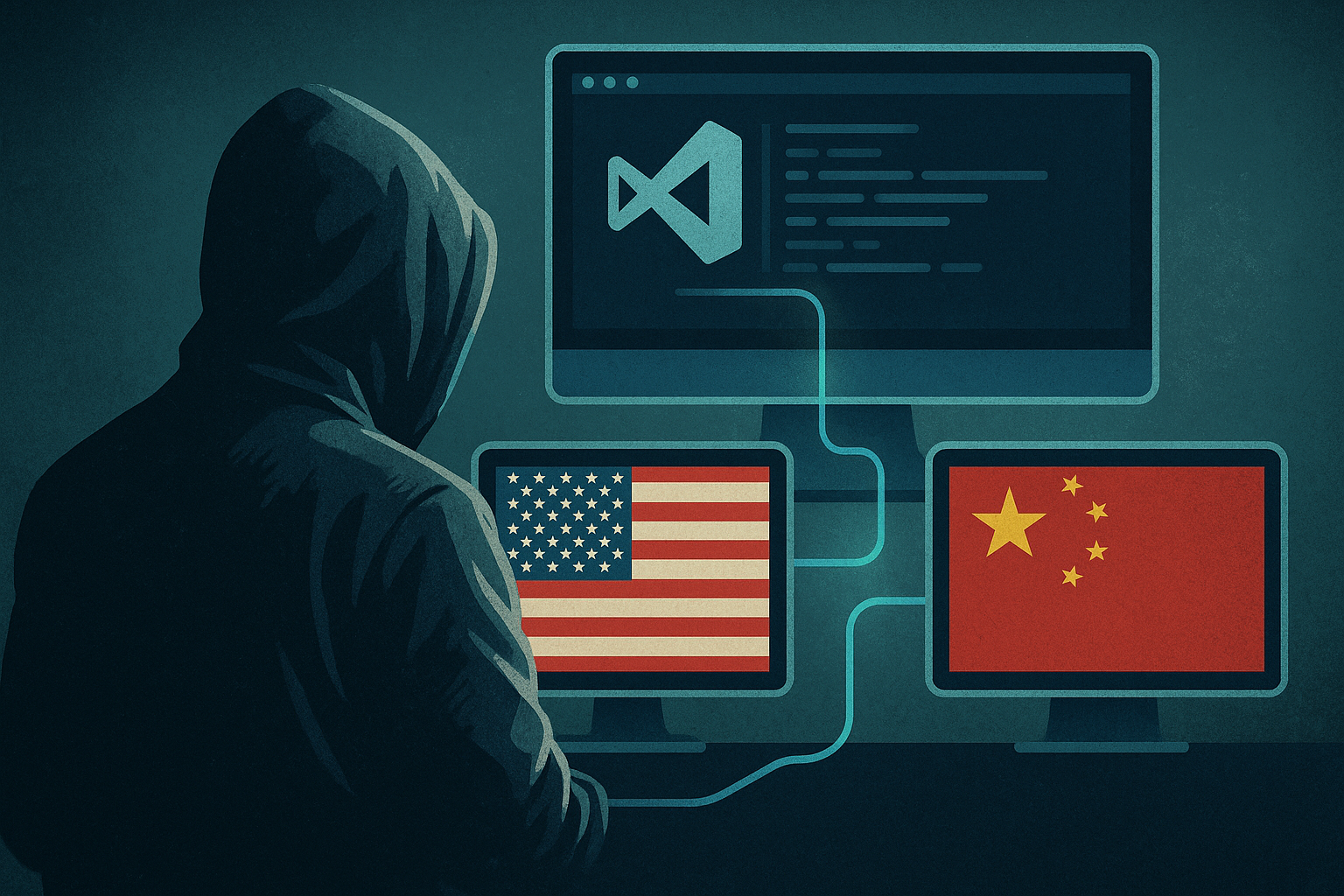A China-aligned threat actor known as TA415 has been attributed to spear-phishing campaigns targeting the U.S. government, think tanks and academic organizations, employing economic-policy themed lures linked to U.S.-China trade efforts, according to a threat brief by Proofpoint.
The analysis notes that the group pretended to be the current Chair of the Select Committee on Strategic Competition between the United States and the Chinese Communist Party (CCP) as well as the U.S.-China Business Council to reach individuals dealing with international trade, economic policy and U.S.-China relations.
The activity was observed during July and August 2025 and appears to be part of a continued effort by Chinese state‑sponsored actors to gather intelligence amid ongoing U.S.-China trade talks. Proofpoint also identifies overlaps with threat clusters commonly tracked as APT41 and Brass Typhoon (formerly Barium).
The campaign used the email address uschina@zohomail[.]com and relied on the Cloudflare WARP VPN to obfuscate traffic origins. Messages directed targets to password‑protected archives hosted on public cloud services such as Zoho WorkDrive, Dropbox and OpenDrive. Within those archives, attackers placed a Windows shortcut (LNK) designed to launch a batch script and a hidden folder containing an obfuscated Python loader named WhirlCoil. Earlier variants reportedly downloaded the loader from Paste sites and the Python package from the official Python site, according to Proofpoint.
Once executed, the loader establishes a Visual Studio Code remote tunnel to enable persistent backdoor access and harvests system information and the contents of various user directories. The collected data is transmitted back to a free request logging service (e.g., requestrepo[.]com) in a base64‑encoded blob via an HTTP POST request.
The infection chain also deploys persistence techniques, including scheduled tasks that commonly appear as GoogleUpdate or MicrosoftHealthcareMonitorNode and are designed to run the loader every two hours, typically with SYSTEM privileges if the compromised host grants administrative access. Proofpoint notes the overall approach has remained largely consistent with a prior attack sequence that leveraged VS Code Remote Tunnels to gain unauthorized access.

